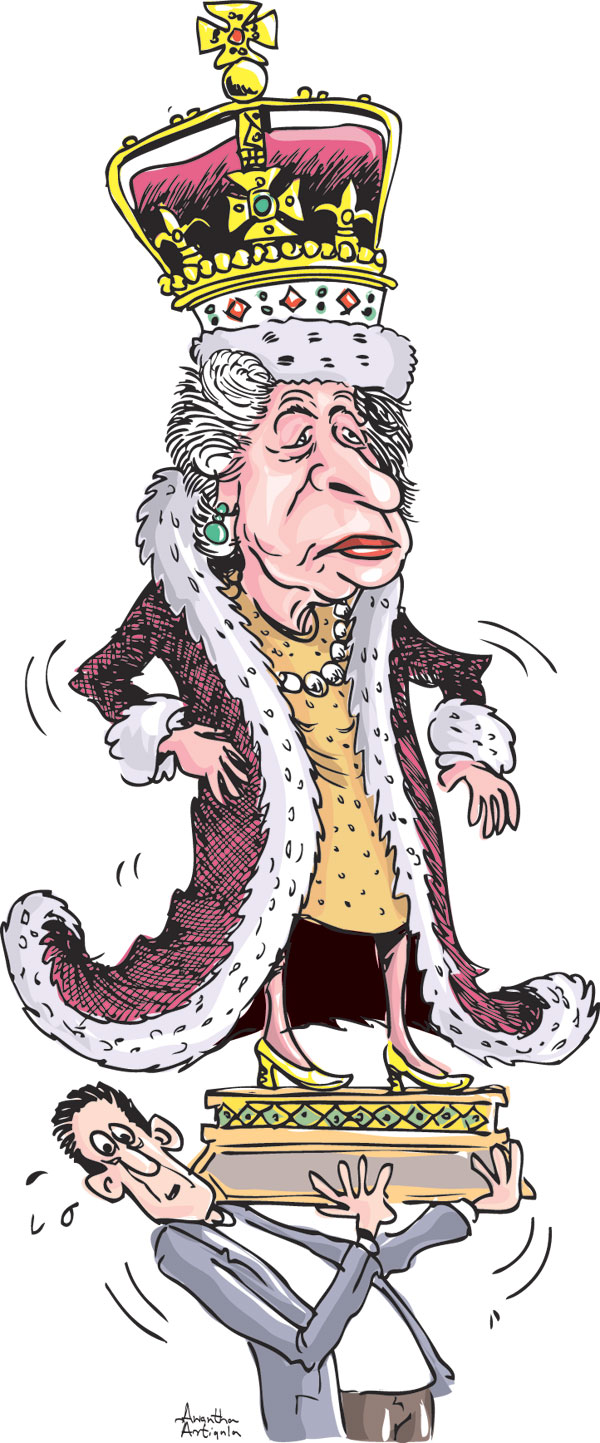Reply To:
Name - Reply Comment
By L. Jovian
The run up to this event has been marred by criticism from the human rights community who have accused the royals of courting and consorting with tyrants.
These allegations cannot easily be refuted. On 18th May the Queen held a luncheon at Windsor Palace, the guest list for which read like a whose who of crowned despots and autocrats. The most prominent name on this list was Hamad Al-Khalifa, The Bahraini monarch who gained international notoriety last year for his brutal and bloody crackdown on pro-democracy protesters. Other less than savoury lunch attendees included King Mswati III of Swaziland, whose lavish lifestyle makes a mockery of the abject poverty of his people and an array of royal dignitaries from Gulf States frequently criticized for their oppression and brutality. Preparations for the Queen’s jubilee day luncheon on June 6th have been similarly blighted. Rights activists have paid particular attention to the invitation of Sri Lankan President Mahinda Rajapaksa whose regime have come under increased scrutiny over alleged war crimes and ‘disappearances’.
Human Rights activist Peter Tatchell has claimed that “inviting bloodstained despots brings shame to our monarchy and tarnishes the Diamond Jubilee celebrations.” I beg to differ; the presence of these despots is perfectly expected. Queen Elizabeth II and her family have been entertaining tyrants, from Amin to Assad, for years but have largely remained immune from public criticism. The question is why?
I believe that the core issue is that the British people (in which I am included) view their royal family as apolitical. Though nominally subjects, they see their monarch as impotent when it comes to the political arena. The British royal family are perceived either in fairytale terms or alternatively as some strange 19th century themed reality TV show; either way the characters involved have no substantial impact on their lives. For those of us uninterested it is easy to switch over and ignore the pageantry and corgis. Even those of us who see the family as a living relic are usually happy enough to pay for them to be polished and placed in the nation's front window to sell as ‘history’ to heavy walleted tourists.
The problem is that beyond Europe, royalty often means more than fairytale princesses and evil stepmothers. Many of the monarchs with whom our royalty mingle continue to wield absolute, oppressive power over their people. Moreover, we often forget that the queen is not only a monarch but also a ‘head of state’. She is therefore officially an equal to (and required to entertain) not only other monarchs but also all varieties of other sovereigns from Presidents to Supreme Leaders.
The British monarchy may be symbolic but as anybody with a basic knowledge of marketing (or fascism) will tell you, the use of symbols is key to the harnessing of power. The historical significance and therefore symbolic power of the British royal family should not be underestimated. The very same symbolic power that draws eager union-jack clad tourists to the UK also enables despots to use the Queen's handshakes and the Duke’s bows as propaganda to legitimize their regimes. The Queen cannot therefore be considered apolitical and it is irresponsible to continue to consider her as such. Her choice of actions and friends reflect directly on the UK as a country and the British people must stop fooling themselves otherwise. It is high time we took her high teas seriously, she must be judged like any political figure, by the company she keeps.
Next week the UK marks the Diamond Jubilee; 60 years of Queen Elizabeth it's reign
